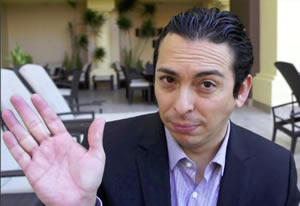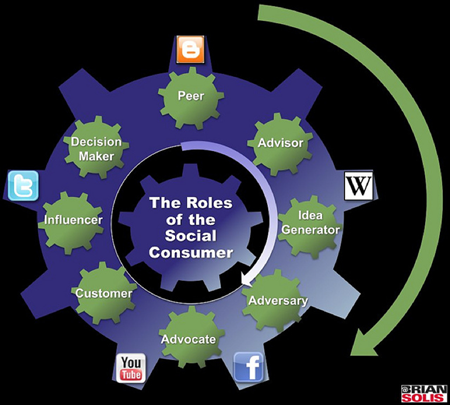
Engage or Die
1. Our opportunity with social media is to do something more meaningful than just “marketing”.
2. Social media is not here to save you. It’s not here to make your business matter again. That’s your job. Social media are the tools to help you connect and engage.
3. Each social platform is its own community. What we do on the social web isn’t about social media at large, but cultivating community within each distinct platform. If this was easy, we wouldn’t be here.
4. Where to start: What makes you/your business so special?
5. This is not a social destination situation. On the social web, you’ve really go to be compelling to engage or visitors will just leave and go somewhere else.
6. Social media is an earned privilege. It’s not a right, but a rite of passage. We have to compete for that Like or Follow every single day.
7. Why do people unlike brands on Facebook? Study: ExactTarget & cotweet (pdf) They post too often and posts are too promotional.
8. It’s not just about engagement, it’s about being engaging. So, how are you going to gain the attention of your community? What will will you do to keep their attention?
9. Social media just facilitates conversation, connection and community. Those things existed long before the social web.
10. There are three types of customers on the social web: Traditional Consumer, Online Consumer, Social Customer.
11. The social customer requires that you teach them what they don’t know and give them something they can’t get elsewhere. They won’t come to you. You must go to them.
12. Social consumers spend 1.5x than regular online consumers. They see the world differently and bring it to life through use of social technologies. They connect what you do as brands to their networks of influence.
13. For the Social Consumer, it’s an audience with audiences. Marketing to a social consumer isn’t just marketing to that person, it’s marketing to their network as well.
14. Listening is more than monitoring, reports. What are your customers saying? Where are they tapping into the community for reviews, preferences?
15. Common metrics tracked with listening tools: Mentions, keywords, sentiment, share of voice, sentiment. What’s missing? The why and what’s in it for the customer?
16. Eighty percent of businesses are operating with a social media plan that looks like: Twitter? check. Facebook? check. That’s not a plan, it’s a plan to fail.
17. Social marketing: intell, insight, ideation, interation
18. “People” are the missing P to the 4 P’s of marketing. Product, Price, People, Promotion.
19. For the social customer it’s the end of the destination era. It’s time to build bridges between their social communities.
20. Social consumers are beginning to be rewarded for status. Example: Klout score that gets you an upgrade at the Palms hotel in Vegas.
21. Influence is an easy way to engage in a 1 to many format. But a better way is 1 to 1 to many. It’s about introducing value to the right people.
22. Do something exciting! Get off your ass and engage your passions.
23. The important question is: “Who’s influencing your market at the peer level?” Not popularity or influence. Influence is not popularity and vice versa. “Likes” are not influence.
24. Influence is the capacity to change behavior, affect outcomes. Your job is to bridge cause and effect.
25. Vocus study: “What Makes an Influencer” (pdf) The most important factor of influence is ability to publish useful, compelling information.
26. Three tools to find influencers: mPACT, Klout, research.ly
27. We’re moving away from social graph (popularity) to the “interest graph”.
28. Connect to the right people in the right way. You have to invest in these experiences.
29. Would you tweet your mission statement? think about what your company means to the social space. why would someone want to connect with you, align themselves with you?
30. It’s not just about engagement but giving people something to engage around. Every company is a media company. Tom Foremski
31. Context is King: Treat each community individually. It leaves you wanting more, not spam.
32. Continually invest in content and engagement. Make things worth sharing so they extend beyond the influencer. They always know you’re there. and you leave them wanting more.
33. When it comes to ROI, the “R” is business value, not just $.
34. The future of business is not created, it’s co-created.
35. Your leadership is key in social business.
These insights were captured during one of Brian’s recent keynote presentations and rather than liveblog a transcription, I thought I’d pull out the “‘truisms” that Brian is so well known for sharing. Thank you Brian for your leadership and insights.



